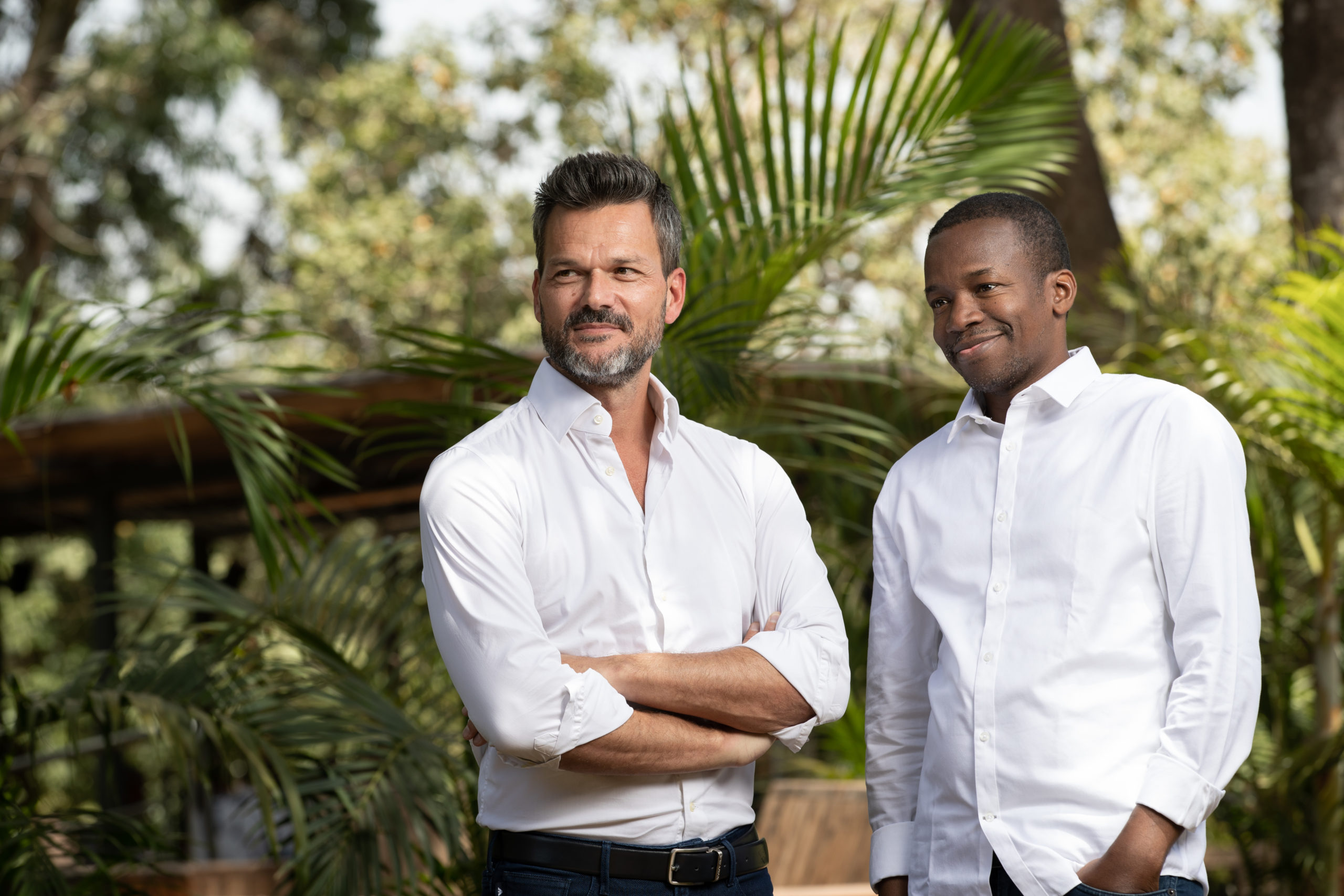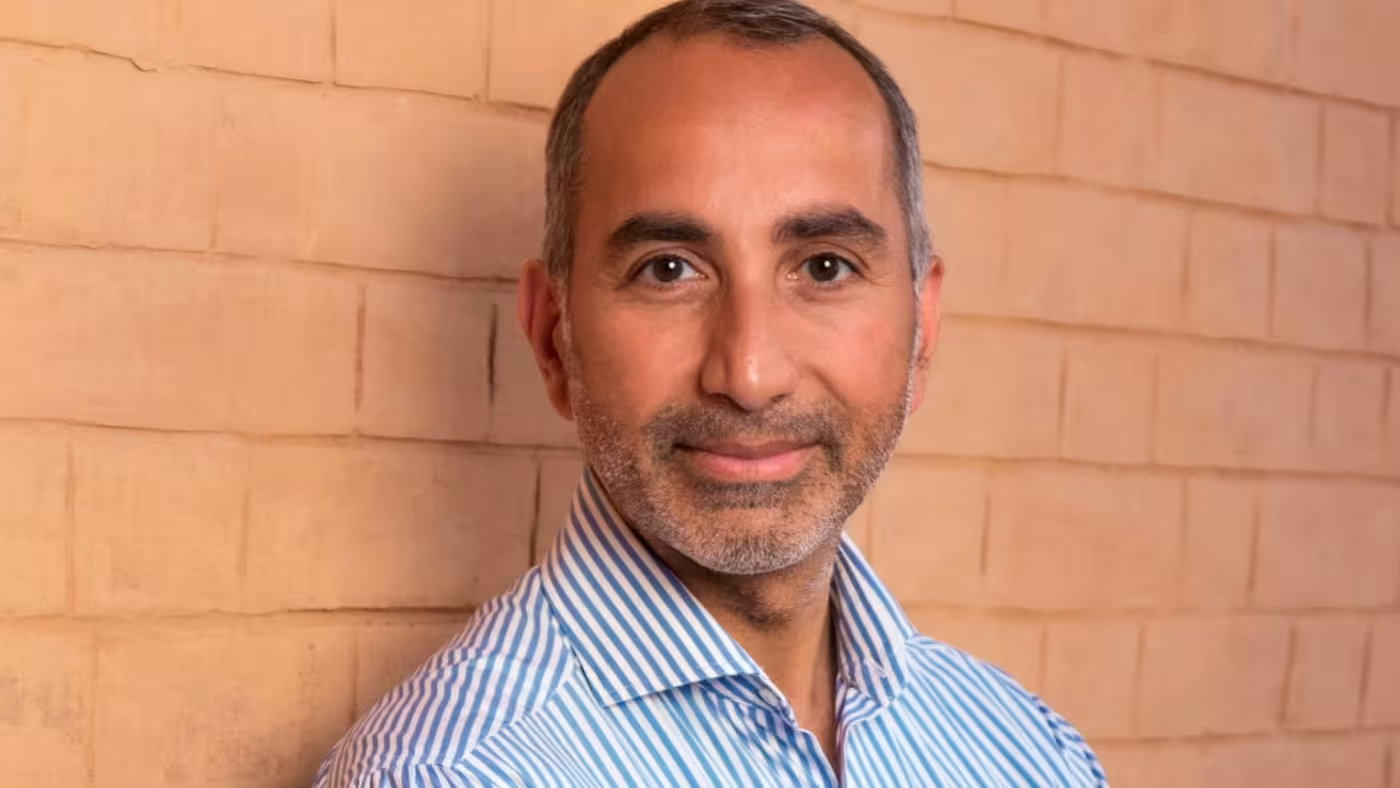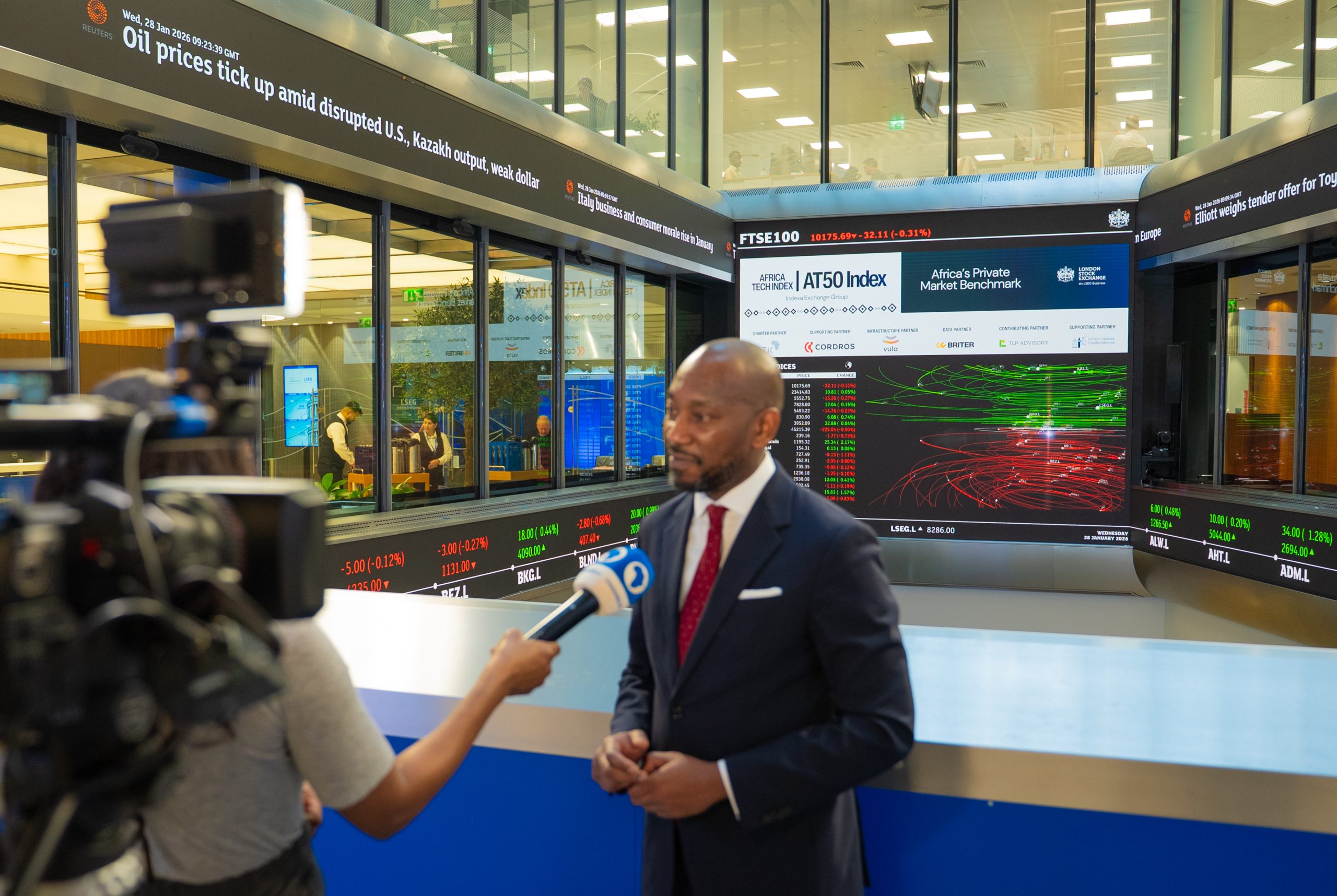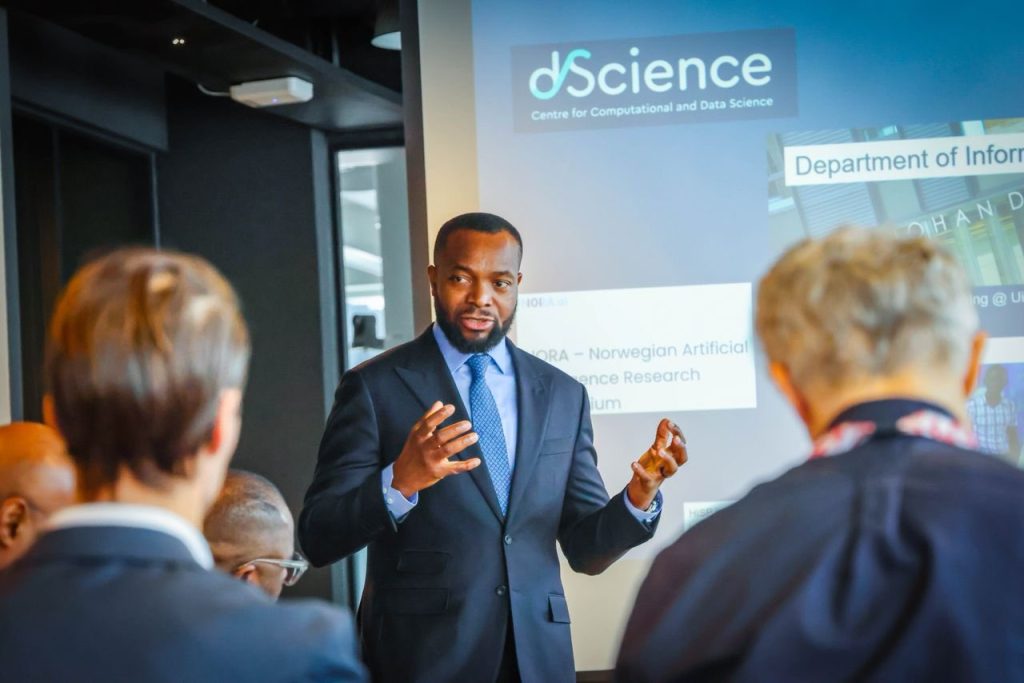In February, Partech, the global VC firm that has backed companies like TradeDepot and Wave, fully closed ‘Partech II,’ an over $300 million (€280 million) Africa-focused fund—the largest on the continent. It was a delightful turn of events for the VC firm that initially targeted raising about $282 million (€230 million), and for a continent that saw VC funding decline by 46% in 2023.
Partech Africa II attracted significant interest from individual and international institutional partners, such as family offices and development finance institutions (DFIs). This is partly attributed to Partech’s regional experience, as evidenced by the $500 million acquisition of a portfolio company, Sendwave, and the attainment of unicorn status by Wave, another portfolio company.
The VC fund is led by general partners Tidjane Dème and Cyril Collon, who, before joining Partech, operated several businesses in Africa. They joined the VC firm in 2016—three years before its first Africa-focused VC fund, Partech Africa I, closed at $143 million.
Partech Africa II invests across various sectors, with current holdings in e-commerce, healthcare, and real estate. The previous fund invested in 17 companies across seed to Series C stages.
Partech II will priortise Series A and B rounds, with investment sizes ranging from $1 million to $15 million per startup. The new fund has already made three investments in Revio, a South African payment startup, an undisclosed e-commerce platform in Senegal, and an undisclosed real estate startup in Egypt.
TechCabal sat down with Tidjane Dème, one of the general partners. He described the firm’s investment approach in Africa, what Partech seeks in founders and the businesses they back, and how the fund is intentionally working towards exits.
TC: Before the Africa-focused fund, Partech Africa Fund I, was closed, the global VC fund made two investments in Africa: Yoco (a South African fintech) and TradeDepot (a Nigerian retail technology startup). Why was it necessary to create a separate fund for African Investment?
TD: Africa needed local investment; that is what we wanted the fund to be.
Before joining Partech, Cyril and I worked extensively in Africa in positions that gave us a unique perspective on the emergence of a younger generation who, instead of seeking jobs, were starting companies to tackle fundamental problems in climate, energy, health, and more.
However, they consistently complained about the lack of access to capital needed to validate and scale their innovations. Founders need a specific kind of capital: ‘smart capital’. Local banks are incapable of providing it, but venture capitalists can. At the time, however, the local VC landscape was quite nascent, and foreign VCs were not equipped to address this market because their funds were not dedicated to Africa.
The other important point for us was that this investment needed to be based on commercial returns, and not [charitable] impact. That was the challenge that inspired our first Africa-focused VC fund. It is also why we started sharing those numbers in the form of annual reports.
Our hypothesis has been thoroughly validated over the years. The numbers showed that this ecosystem was growing faster than any ecosystem in the world. It grew 10x in the last eight years, and some returns have started materialising for some investors. Today, it is a no-brainer for any global investor; you can invest profitably in African startups.

You mentioned smart capital. Can you elaborate on what makes venture capital smart?
TD: There are two fundamental qualities of VC capital, that are a necessity to drive startups everywhere, including in Africa.
The first is the willingness to take early-stage risks. When investing in seed companies anywhere in the world, venture capital is smart enough to understand that roughly 80% will fail. This isn’t because they’re bad ideas; it’s because they’re so early-stage that inherent uncertainty exists. Venture capital is smart capital because it recognises that by picking the right 20% that succeed, they can make up for all the losses.
The second smart aspect of VC is the way it invests in early-stage startups. The typical founder is in their mid-twenties, and the startup might be their first job. If successful, the startup will grow from this small team to hundreds in the next five years. The founders will transition from “this is my first job,” to leading a team of hundreds or running a complex, multi-million dollar company. This is a journey of immense learning and growth for the entire team. They need experienced advisors, expertise, models, and frameworks to guide their thinking and building – all of which VC brings to the table. This is what smart capital means.

There has been a lot of talk about how venture capital, considering its growth-at-all-cost approach, is not suitable for building in Africa, where the business environment is riddled with regulatory uncertainty and economic hardship. What do you think of this?
TD: Venture capital funding can only work if the fund can expect a 10x return on the few (20%) that succeed. This needs to happen within a short timeframe (5-7 years). For this to work, the companies need to grow very fast. However, some companies do not grow as fast, despite being great businesses. Such businesses will not do well with just venture capital. They need other types of investors, such as traditional private equity, angel investors, family offices, and more.
Even for fast-growing startups, venture capital can’t cover all their needs throughout their journey. Why should a company give away part of their equity to raise funding for a short-term need? In such cases, what startups need is venture debt. Unlike traditional bank loans, venture debt doesn’t require significant existing assets. Instead, it’s secured by the purchased equipment and the projected cash flow return.
Unfortunately, access to venture debt and affordable working capital providers remains limited in Africa. However, the African market is still young. As it matures, we can expect a wider range of funding options to emerge, alleviating the current over-reliance on venture capital for needs that could be better served by other instruments.

Beyond limited access to working capital, what non-financial hurdles do African startups encounter at different stages (seed, growth, etc.)?
TD: There are numerous challenges facing African startups, and I understand this firsthand – I’ve been there and failed too. The first one that comes to mind is infrastructure: Africa’s lack of established support systems creates operational friction.
Imagine launching an e-commerce platform in the US, even 20 years ago. Customers already have internet access, reliable payment systems, established delivery services like UPS, and a robust warehousing industry – everything you need to hit the ground running.
Now, compare that to launching an e-commerce company targeting mom-and-pop stores in Lagos. Reaching them online might not be an option. Instead, you may need to go door-to-door to onboard them on the app and train them on its use.
Furthermore, to ensure daily inventory orders from these traders, the startup might need to manage its logistics due to unreliable existing delivery networks, and this is very capital-intensive.
The infrastructure problem is both a problem and an opportunity. There is a problem because startups have to build on this infrastructure to function. But it is also an opportunity because many startups solve the problem of access to infrastructure. For example, mobile money companies across Africa exist because people in Africa don’t have access to bank accounts.
There are also regulatory problems. Startups often face a lot of administrative hassle with regulators.
Given all these challenges, how does Partech decide which companies will survive long enough to scale and deliver outsized returns to the fund?
TD: At Partech, we leverage a unique framework to evaluate potential investments: the four Ms. The first M is management. Successful startups require strong management teams that can navigate challenges, find solutions, and execute their vision. This assessment is arguably the most crucial yet the most challenging, as there’s no one-size-fits-all approach to evaluating it.
The second M stands for Market. We look for companies addressing a large, established market with significant growth potential. After all, VC success hinges on our portfolio companies scaling rapidly. Take Trade Depot in Nigeria, our first investment, for instance. They’re tackling inefficiencies in the massive Fast-Moving Consumer Goods (FMCG) sector, a market generating hundreds of billions of dollars annually. Solving these inefficiencies creates an opportunity for significant growth.
The third M is Model. Can you build a business, not just a product? While profitability might not be immediate, a clear path to eventual profitability is essential. This involves scrutinising the technology, marketing, operational, and overall business models, particularly in the early stages when much remains undefined. The difficulty of doing VC is in being able to make those decisions on very little data.
The last M is momentum. If you believe that this company is going to grow very fast in the next few years, we expect the company to exhibit strong growth trajectories. Momentum tells us that they’re doing something right. For instance, a Series A company might need a user base growing 10-20% month-over-month. This momentum is crucial to achieve the exponential growth needed to compensate for inevitable investment losses.
But there is a caveat: even the most comprehensive framework can’t guarantee success. Sometimes, despite a compelling model and strong execution, unforeseen market forces can derail a company. This is a reality that both founders and investors must acknowledge.

While every startup has potential, what initial signs might suggest a company wouldn’t be a strong fit for your fund’s long-term goals?
TD: Seed-stage investors will tell you that one of the biggest reasons startups fail is team breakdown. Existing team dysfunction is a red flag.
In addition, young teams often encounter problems they haven’t faced before. The inability of a founder to listen and learn from those around them is a major red flag for me. A coachable founder who actively seeks guidance is far more likely to succeed.
Another worrisome factor is out-of-whack unit economics. Early-stage startups can achieve rapid growth by throwing money at marketing, but this might mask an unsustainable business model. High customer acquisition costs coupled with rapid customer churn – meaning you’re losing customers faster than you’re acquiring them – and low customer lifetime value all point to bad unit economics, which is a major red flag.
We also look out for companies struggling to attract or retain top talent. High employee turnover suggests problems within the organisation.
Another indicator that a company might not be a good fit for investment is if it is skirting regulations. Avoiding regulations isn’t a viable long-term strategy.
However, it’s important to acknowledge that even with careful evaluation, mistakes are inevitable. You’ll encounter companies that you decline investment in, only to see them become huge successes. Conversely, you’ll invest in some startups that ultimately fail. Accepting this fallibility is crucial in the venture capital world. You have to be at peace with both successes and missed opportunities.

Have you turned down any companies that went on to be successful?
TD: Investors keep a mental record of companies they regret missing out on – the “Had I Known” portfolio. Paystack is an easy example for me. When they were first raising capital, we at Partech simply didn’t have the funds yet, as we were still fundraising ourselves.
There are also promising companies I’ve declined to invest in that I’m following closely, hoping to see them succeed. While I can’t disclose their names at this point, keeping a watchful eye on such companies is a common practice among investors.
You spoke briefly about unit economics. There are a lot of sectors that have remained loss-making for years as they need to continue subsidising the cost of their services. A popular example is the food delivery startups. What is your opinion about such companies?
TD: As I mentioned earlier, Africa’s underdeveloped infrastructure creates additional costs for businesses, making it particularly challenging for delivery companies to build and turn profitable. For example, for a food delivery company, key unit economics metrics include customer acquisition cost and gross margin per delivery. The crucial question is: can this gross margin be positive, and how long will it take to recoup customer acquisition costs?
The hope is that as these companies scale, they can achieve efficiencies that push their negative gross margins into positive territory, ultimately covering the cost of customer acquisition. Many players are innovating in interesting ways to tackle this challenge, but a definitive solution remains elusive.
E-commerce presents another interesting case. While the eventual dominance of online commerce in Africa is undeniable, as an investor in Africa today, it’s challenging to envision oneself supporting a company for the potentially 15 years it might take to achieve full maturity.
You need to believe that you will support this company for a while, and hand it over to another investor who will fund it for the next leg of the journey, and so on until it reaches where it needs to be.
I don’t see the growth stage investors in Africa that can take these capital-intensive startups to the next stage. So [the unit economics of some of these sectors] will be a problem for founders and investors for a while until we figure it out.

What you have described sounds like a relay race. Are there any sectors that have a shorter journey ahead of them? Does Partech place bets on these sectors?
TD: We’ve placed bets across all of these sectors. But if you look at the whole VC industry in Africa, basically half of the money has been invested in fintech. This is because fintech is the only sector where we’ve seen companies go from seed to exit reliably. Even though it is only in a few markets: Nigeria, Egypt, and South Africa.
However, we believe opportunities exist beyond fintech. For example, our portfolio company, Reliance Health, in Nigeria, tackles healthcare access through insurance. It’s one of the few profitable health insurance providers in Africa, and it’s expanding regionally. Similar companies exist, but they only serve a small portion of the vast, underserved healthcare market across the continent.
In Silicon Valley, VC investment often focuses solely on highly scalable software solutions. But the African startup landscape demands a different approach—a successful combination of technology and on-the-ground operations.
Even seemingly simple fintech solutions require building agent networks to bridge the gap between cash-based reality and the digital world. All these companies need to actively onboard users, which requires operational legwork.
Any company in any sector that effectively combines technology and operations has the potential to become a champion.
Considering how long and tenuous the journey to an exit is, how does Partech think about returning significant multiples of profit to its investors?
TD: We’re currently expanding our team with a portfolio growth manager dedicated to helping our companies develop clear exit strategies. This proactive approach is essential because, unlike the US market, where established giants like Google or Facebook might make opportunistic acquisitions, building a successful exit in Africa requires intentionality.
Companies are typically acquired by entities that have tracked their progress for several years, recognising the value they’ve built. This means if you envision an exit in three to five years, you need to start building relationships with potential acquirers today.
At Partech, we’re fortunate to have a network of potential strategic buyers among our investors, including large corporations like telecommunications groups, retail giants, and industrial groups. These existing relationships allow us to have ongoing conversations with potential acquirers, gaining insights into what makes companies attractive long-term. We then share these insights with our portfolio companies.
Bridging the gap between VC and private equity is also crucial, as they are potential acquirers of our mature and profitable portfolio companies.
Also, we are very careful about valuations. Companies with inflated valuations in 2021 struggle to raise funds now. Overvaluation can tamper with the capitalisation table and cause conflicts with investors. We avoided this by being disciplined in our investments and encouraging the same in our portfolio companies. We are proud to share that none of our portfolio companies are having a difficult time raising follow-up investments.
Editor’s note: This interview has been edited for length and clarity.



















